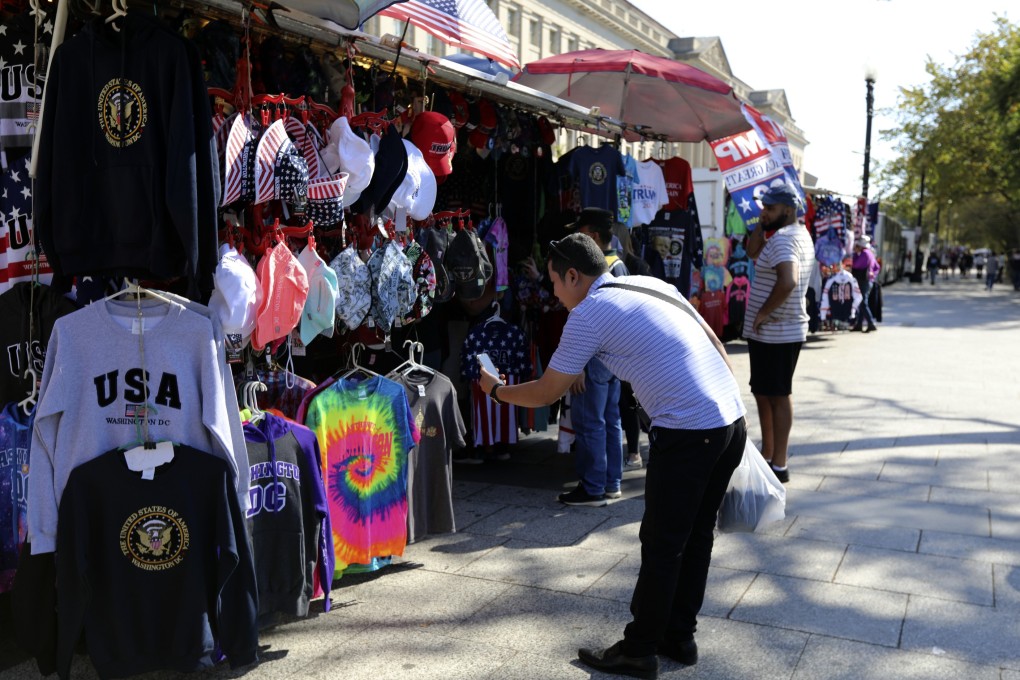China’s outbound tourism likely restrained as trade war, yuan weakness deter overseas travels: Euromonitor
- The number of Chinese taking overseas trips is likely to be reduced by impact of trade war and yuan weakness over the next five years: Euromonitor
- Yuan has weakened 7 per cent this year against the US dollar, induces ‘currency manipulator’ tag

China is expected to suffer more than the US in outbound tourism over the next five years under a scenario of heightening trade war between the world’s two largest economies, according to an analysis by Euromonitor International.
The number of Chinese travellers going overseas is estimated at 160 million by 2024, instead of an upside potential of 165 million without a trade war, the market research firm said in a report released on Wednesday. Some 135 million Americans are seen making overseas trips by 2024, or just 1 million fewer than a no-war assumption, it said.
The scenario analysis is based on the US raising trade tariffs on Chinese imports by 15-25 percentage points and China retaliating by slapping higher rates on all American imports and restricting the operations of multinationals in the Asian nation. Euromonitor sees a 28 per cent chance of this playing out.
“The US is less impacted by the trade war in terms of the effect on GDP and relative price levels than China is,” Caroline Bremner, industry manager on travel at Euromonitor, said in an email interview. She highlighted that signs of slower growth and a slide in the yuan could further weigh on Chinese outbound travels.
China manufacturing slumps for sixth straight month, October PMI disappoints
Ongoing geopolitical tensions between the US and China have also chilled business confidence and investment, hitting consumers’ spending power over the past year. Both sides have followed up with higher tariffs on goods since the US targeted steel and aluminium exports from China in early 2018.